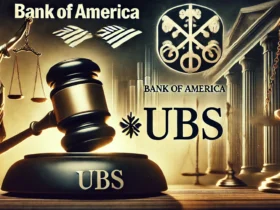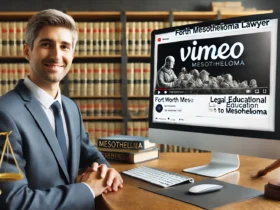Overview of the Sheetz Lawsuit
The Sheetz lawsuit is a legal action brought against the company for its handling of background checks during the hiring process. Sheetz is accused of not following proper legal procedures when performing these checks on job applicants. This lawsuit is based on claims that Sheetz violated the Fair Credit Reporting Act (FCRA), which sets strict rules for conducting background checks.
Summary of the claims related to background checks
The claims in the Sheetz lawsuit are focused on how the company managed its background checks. The lawsuit argues that Sheetz did not properly inform job applicants that their personal information would be used in these background checks. The plaintiffs claim that Sheetz did not give clear or sufficient notice to applicants about their rights under the Fair Credit Reporting Act. Specifically, the lawsuit alleges that Sheetz did not provide a standalone disclosure, which is required before conducting a background check. Additionally, applicants were not told how to dispute incorrect information that might appear in their reports.
Why the lawsuit was filed
The lawsuit against Sheetz was filed because of these alleged failures to follow the Fair Credit Reporting Act. The law requires that companies conducting background checks provide applicants with a clear and separate document explaining their rights. This includes notifying them that a background check is being conducted and giving them a chance to dispute any errors in the report. The lawsuit claims that Sheetz did not meet these requirements, leading to the legal action against the company.
Background Checks and Employment Practices
Explanation of background checks in the hiring process
Background checks are a common practice used by employers to verify information about job applicants before hiring them. These checks can include verifying a person’s criminal record, employment history, credit report, and education. The purpose of background checks is to ensure that the applicant is trustworthy and does not pose any risk to the company or its employees. Many companies use background checks to avoid legal issues, fraud, or hiring someone with a dangerous history.
Legal requirements for background checks in the U.S.
In the U.S., employers must follow strict legal rules when conducting background checks. The Fair Credit Reporting Act (FCRA) is the main federal law that governs how these checks are performed. Under the FCRA, employers are required to inform applicants in writing that a background check will be conducted. This notification must be clear and provided separately from other documents. The employer must also obtain written consent from the applicant before running the check. If any adverse action, like refusing to hire, is based on the results of the background check, the employer must provide a copy of the report to the applicant and inform them of their rights.
How Sheetz conducted background checks
In the case of Sheetz, the company is accused of not properly following the legal requirements set out in the FCRA when performing background checks on job applicants. According to the lawsuit, Sheetz allegedly failed to provide clear and separate disclosures informing applicants that they were subject to a background check. Additionally, applicants were not given the opportunity to review or dispute any errors in their reports, which is required by law. This failure to follow FCRA regulations led to the lawsuit being filed against the company.
Allegations in the Lawsuit
Claims against Sheetz regarding improper background check procedures
The lawsuit against Sheetz includes several serious claims about how the company conducted its background checks. The plaintiffs in the case argue that Sheetz did not follow the proper legal process when screening job applicants. Specifically, it is alleged that Sheetz failed to provide applicants with clear and separate written disclosures before conducting the checks. The lawsuit claims that Sheetz did not properly inform applicants that a background check was being performed, which is required under federal law.
Violations of the Fair Credit Reporting Act (FCRA)
The central legal issue in this case involves violations of the Fair Credit Reporting Act (FCRA). The FCRA mandates that employers must follow strict guidelines when conducting background checks. According to the lawsuit, Sheetz did not meet these requirements. The plaintiffs claim that the company failed to provide a standalone disclosure to job applicants, as required by the FCRA, before obtaining consumer reports. Furthermore, Sheetz is accused of not giving applicants the opportunity to review or dispute any incorrect information found in their reports. These failures to comply with the FCRA form the basis of the legal action against Sheetz.
Impact on employees and applicants
The improper handling of background checks by Sheetz has had a negative impact on both employees and applicants. Many applicants may have been denied jobs based on information they were not aware of or had no chance to correct. This can result in lost job opportunities, financial hardship, and emotional distress for those affected. Employees and applicants who were subjected to these flawed procedures may feel that their rights were violated, leading to the legal action against Sheetz. The lawsuit seeks to hold the company accountable and ensure fair treatment for all individuals involved in the hiring process.
The Fair Credit Reporting Act (FCRA)
Overview of FCRA and its requirements for background checks
The Fair Credit Reporting Act (FCRA) is a federal law in the United States that governs how consumer information, including background checks, can be used by employers. The FCRA is designed to protect the privacy and accuracy of consumer information. Under this law, employers must provide job applicants with a clear and separate disclosure, informing them that a background check will be conducted. Employers must also obtain written consent from the applicant before proceeding. Additionally, if an adverse decision is made based on the background check, the employer is required to provide the applicant with a copy of the report and an explanation of their rights, including the ability to dispute any inaccuracies.
How the Sheetz lawsuit relates to FCRA violations
The Sheetz lawsuit is centered around the company’s alleged violations of the FCRA. According to the lawsuit, Sheetz failed to provide applicants with the required standalone disclosure, notifying them that a background check was being performed. Furthermore, the lawsuit claims that applicants were not informed of their right to review and dispute any inaccurate information found in their reports, as required by the FCRA. These alleged failures form the basis of the legal action, with plaintiffs arguing that Sheetz did not comply with the basic protections outlined in the FCRA.
Consequences of violating the FCRA in employment
Employers who violate the FCRA can face serious legal and financial consequences. In the case of the Sheetz lawsuit, the company could be required to pay damages to affected individuals, including statutory damages, punitive damages, and legal fees. Violating the FCRA not only results in lawsuits but can also damage a company’s reputation. In many cases, companies are required to change their practices and ensure compliance with the law to avoid further legal issues.
Legal Implications for Sheetz
Potential penalties and fines related to the lawsuit
If Sheetz is found to have violated the Fair Credit Reporting Act (FCRA), the company could face significant penalties and fines. Under the FCRA, companies can be required to pay statutory damages ranging from $100 to $1,000 per violation. Additionally, plaintiffs may seek punitive damages if the violation is deemed willful. In class action lawsuits, which this case could potentially become, the fines and compensation can multiply, leading to large financial settlements. Legal fees and court costs can also add up, further increasing the financial impact on Sheetz.
How the lawsuit could affect Sheetz’s business practices
The outcome of the Sheetz lawsuit could lead to major changes in the company’s business practices, particularly in how it handles background checks. If the company is found liable, it may be required to overhaul its hiring process to ensure compliance with the FCRA. This could involve revising the disclosure forms provided to applicants, improving transparency in the background check process, and ensuring that applicants are informed of their rights to dispute any incorrect information. Additionally, Sheetz may need to implement training programs for its human resources department to avoid future legal issues.
Legal precedent for similar cases
There have been several cases in the past where companies were sued for FCRA violations related to background checks. In many of these cases, companies were required to pay large settlements or fines, and they were often forced to change their hiring practices. These cases set a legal precedent, indicating that employers must strictly adhere to the rules set forth by the FCRA. The Sheetz lawsuit could follow a similar path, reinforcing the importance of compliance with background check laws. Legal precedents like this send a strong message to other businesses about the consequences of not following proper procedures.
Impact on Employees and Applicants
How improper background checks affect job seekers
When companies conduct improper background checks, it can have a significant impact on job seekers. Incorrect or incomplete information in the background check report can result in job applications being rejected. Even if the information is outdated or wrong, employers may deny applicants the opportunity to correct it. This can lead to job seekers losing out on employment opportunities, facing financial difficulties, and damaging their reputations. In cases like the Sheetz lawsuit, applicants may have been denied jobs based on background checks they were not fully informed about.
Rights of employees and applicants in such cases
Under the Fair Credit Reporting Act (FCRA), employees and applicants have specific rights when it comes to background checks. They must be informed in writing that a background check will be conducted, and they must give consent before the check takes place. If the check results in negative action, such as not being hired, the applicant must be provided with a copy of the report and given a chance to correct any errors. In cases like the Sheetz lawsuit, the rights of job seekers are at the center, with claims that the company did not follow these legal requirements.
What job applicants can do if they are affected
Job applicants who believe they were unfairly affected by improper background checks can take several actions. First, they can request a copy of the background check report used by the employer and review it for any inaccuracies. If errors are found, applicants can dispute the information with the background check company. Additionally, they have the right to file a complaint with the Massachusetts Attorney General’s Office or pursue legal action if their rights under the FCRA were violated. Applicants can also join class-action lawsuits like the one against Sheetz, seeking compensation for the harm they experienced due to improper background checks.
Outcomes and Resolutions
Current status of the lawsuit (if resolved)
As of mid-2024, the Sheetz lawsuit remains unresolved, with the case actively being pursued by the Equal Employment Opportunity Commission (EEOC). The lawsuit was officially filed after attempts to mediate a settlement between Sheetz and the EEOC failed. The case centers on the company’s use of criminal background checks, which the EEOC claims disproportionately impacted minority job applicants, such as Black, Native American, and multiracial individuals. The outcome of this lawsuit is still pending as it moves through the legal system.
Settlements or court rulings
No settlements or court rulings have been made yet regarding this specific lawsuit. However, if Sheetz is found liable, they may face significant financial penalties, including back pay, retroactive seniority for affected applicants, and possibly compensation for emotional distress. Settlements in similar cases have reached millions of dollars, but the court has yet to determine the outcome for Sheetz.
Long-term changes in Sheetz’s background check policies
While no official changes have been confirmed, Sheetz will likely need to revise its background check policies if the lawsuit results in a ruling against the company. This could include adopting more individualized assessments for applicants with criminal records and offering a formal appeal process for rejected candidates. The lawsuit may also push Sheetz to comply with “fair chance” laws, which require companies to provide clear explanations and reconsideration opportunities for applicants rejected due to their criminal history. The changes could set a new standard not only for Sheetz but also for other companies in similar industries.
Preventing Future Issues with Background Checks
Companies conducting background checks should take necessary precautions to avoid legal issues and ensure compliance with laws like the Fair Credit Reporting Act (FCRA). By following best practices, businesses can minimize the risk of lawsuits and maintain ethical hiring processes. Here are some key points:
- Best practices for companies conducting background checks
Businesses should ensure that their background checks are thorough but fair. This includes getting consent from applicants, providing proper notice, and being transparent about the process. - How businesses can comply with FCRA regulations
To comply with FCRA, companies must provide candidates with a copy of the report if adverse action is taken based on the check. They should also inform applicants of their rights to dispute any inaccuracies. - Lessons for employers to avoid similar lawsuits
Employers can learn from past lawsuits by reviewing their hiring practices, ensuring proper documentation, and avoiding discriminatory or invasive background checks. This will help reduce the chances of facing legal action.
Public Reaction and Media Coverage
The Sheetz lawsuit concerning background checks has garnered significant attention from the media and the public. The case has sparked discussions on hiring practices and legal compliance, reflecting the broader concerns of fairness and privacy in employment processes. Below are the key aspects of public reaction and media coverage:
- Media coverage of the Sheetz lawsuit
News outlets have widely covered the Sheetz lawsuit, highlighting the alleged violations of background check procedures. Reports have focused on the legal implications and how this case reflects a growing trend of companies facing scrutiny over their hiring practices. - Public opinion and response to the case
The public has had mixed reactions to the lawsuit. Some support the legal action, emphasizing the need for transparency and fairness in background checks, while others argue that companies should have the right to screen employees rigorously for safety and reliability reasons. - How the lawsuit has impacted Sheetz’s reputation
The lawsuit has had a noticeable impact on Sheetz’s public image. While some loyal customers continue to support the company, the negative press and public discussions have raised concerns about its hiring practices, potentially damaging its reputation among job seekers and the broader community.
Conclusion
The Sheetz lawsuit highlights the importance of adhering to legal standards when conducting background checks. Companies must ensure that they follow the Fair Credit Reporting Act (FCRA) guidelines to avoid legal disputes and maintain a positive reputation. The public’s reaction to the case underscores the growing concern about privacy and fairness in employment practices. For businesses, this case serves as a reminder to review their procedures, ensuring compliance and transparency to prevent similar issues in the future.
FAQs
What is the Sheetz lawsuit about?
The Sheetz lawsuit involves claims that the company violated background check regulations, particularly the FCRA, by not following proper procedures when conducting background checks on potential employees.
How has the public responded to the lawsuit?
Public reaction has been mixed. Some support the lawsuit, calling for greater transparency in background checks, while others believe that companies like Sheetz should have the right to conduct thorough background screenings to ensure safety.
How does the lawsuit affect Sheetz’s reputation?
The lawsuit has negatively impacted Sheetz’s reputation, particularly in the eyes of job seekers and individuals concerned with privacy and fairness in employment practices. However, loyal customers may still support the company despite the legal controversy.
What can companies learn from the Sheetz lawsuit?
Companies can learn the importance of adhering to FCRA guidelines and ensuring transparency in their hiring processes. Proper documentation and respecting candidate rights are key to avoiding legal issues and maintaining a positive public image.
What are the FCRA regulations regarding background checks?
The FCRA requires businesses to obtain written consent from applicants before conducting background checks, provide copies of the reports to applicants if adverse action is considered, and inform them of their right to dispute inaccuracies in the report.
Read For More Amazing Blogs Law Firm Genius.
















Got a Questions?
Find us on Socials or Contact us and we’ll get back to you as soon as possible.